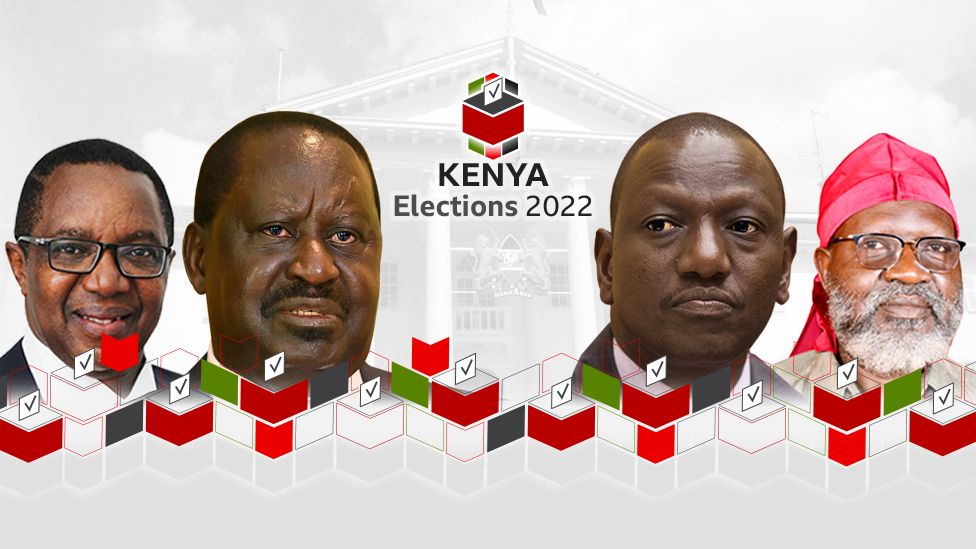Issues from Kenyan 2022 general elections
After a week-long, breathtaking wait for the keenly contested Kenyan presidential elections on August 9, 2022, the Independent Electoral and Boundaries Commission (IEBC) declared as winner, Vice-President William Ruto of the United Democratic Alliance, polling 7.1 million, representing 50.49 per cent of the votes. Serial presidential contestant, Raila Odinga, of the Orange Democratic Movement, came […]

After a week-long, breathtaking wait for the keenly contested Kenyan presidential elections on August 9, 2022, the Independent Electoral and Boundaries Commission (IEBC) declared as winner, Vice-President William Ruto of the United Democratic Alliance, polling 7.1 million, representing 50.49 per cent of the votes. Serial presidential contestant, Raila Odinga, of the Orange Democratic Movement, came second with 6.9 million votes, accounting for 48.5 per cent of the total votes.
Strike: No end in sight as ASUU, FG refuse to shift grounds
Vice President Ruto’s election victory is significant in Kenya because of his grass-to grace emancipation – a chicken seller rising to the pinnacle of Kenyan politics, as vice-president from 2013 to 2022. Ruto had nick-named himself as Kenya’s ‘Hustler-in-Chief,’ in reference to his humble beginning, and termed all Kenyans as hustlers because of the country’s biting economic condition. It would be the first time in the history of East African politics that a sitting vice-president would win the presidency, and the first time a president would emerge from outside the Kenyatta or Odinga political dynasties that have ruled Kenya since political independence in the 1960s. Before he was appointed vice president by outgoing President Uhuru Kenyatta, Ruto was a teacher, and holds a doctorate in Plant Ecology from the University of Nairobi. His campaign focus was to uplift ordinary citizens of Kenya from poverty by prioritising Kenya’s economy.
In his acceptance speech, Ruto promised to run an all-inclusive government that would accommodate the interests of the opposition party. He said, “There is no room for vengeance. I am acutely aware that our country is at a stage where we need all hands on deck. In this election, there are no losers. The people of Kenya have won because we have raised the political bar. The people of Kenya are the biggest winners. It was God that brought us here … my team and I will make sure that the sacrifices made by many Kenyans are not in vain …I will run a transparent, open, democratic government and I will work with the opposition to the extent that they provide oversight over my administration.”
Ruto’s rival, Raila Odinga, on Tuesday rejected the presidential results saying, “The figures announced by Wafula Chebukati (IEBC chairman) were null and void and must be couched by a court of law. In our view there is neither a legally, validly declared winner nor a president-elect. Mr. Chebukati’s announcement purporting to announce a winner is a nullity.”
It is good that Odinga is resorting to legal redress instead of calling out his supporters to engage in violent protest. In 2007, disputes over the presidential election in Kenya led to widespread violence and killings, for which senior politicians were investigated and tried at the International Criminal Court in The Hague.
In spite of the impending legal fireworks, one positive aspect of the Kenyan elections is youth participation. Against previous complacency of youths to elections in many African countries, Kenyan youths trooped out to vote in the just-concluded elections in unprecedented numbers. They may have been propelled by Ruto’s promise to energize the local economy, tackle poverty, unemployment and infrastructure deficit. Youth participation was so significant that some commentators said, “Ruto has excited the youths … almost in a euphoric sense.”
However, local and external observers of elections in African countries would be quick to say that “we have been here before”. All too frequently in Africa, political candidates have been adept at energizing and mobilizing young people, and the electorate more broadly, to the polls. But no sooner had elections ended and victors declared, than the elected officials dash those hopes by refusing to implement the policies on which they campaigned to the latter, to the benefit of the youths, and everyone else. However, as the legal battles play out in this in Kenya, we call on Ruto, should his victory be confirmed and sustained by the courts, to make good his promises to the youths and the Kenyan people, and serve as a good example for the rest of the continent.
Also, as is the trend in African elections in recent years, the use of technology has helped to solve many of the problems with elections. The Kenyans used a biometric technology equivalent to Nigeria’s Bi-Modal Voter Accreditation System (BVAS), to facilitate the electronic transmission of results from polling units to the election commission’s portal, thereby boosting transparency and the credibility in the elections.
One draw-back in the Kenyan elections, the legal challenge to the results aside, is the high cost of the elections, which totalled a whooping $371 million. Going forward, we urge the Kenyan IEBC, as other electoral commissions in Africa, to explore ways of reducing the cost of elections, given the country’s, and the continent’s, poor economic conditions.
As Nigeria prepares for next year’s elections, we hope that INEC will continue to deploy the BVAS which was successfully trialed in Ekiti and Osun off-season governorship elections only a few months ago. Moreover, we call on Nigerian youths to emulate their Kenyan counterparts by thronging to the polls to vote as they had done recently throughout the voter registration process. Finally, we call on the political class to cooperate with our electoral umpire to ensure that the vote of the ordinary Nigerian counts.
